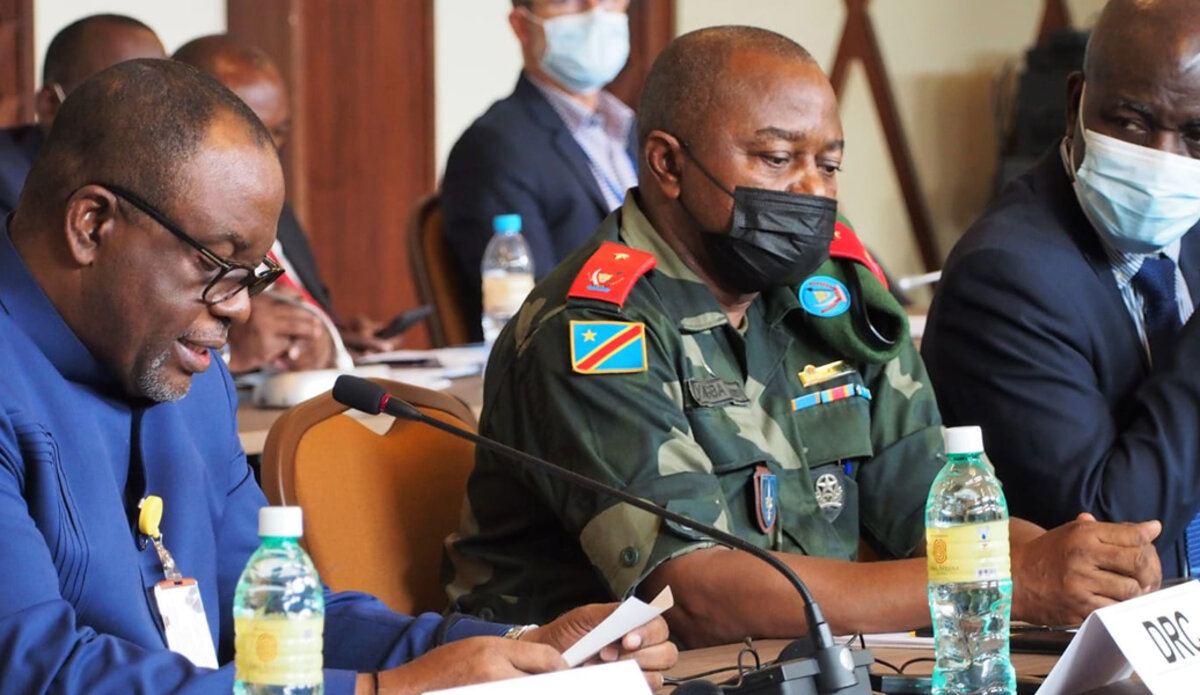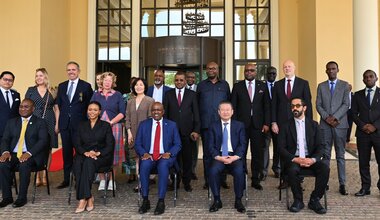Security experts from the Great Lakes discuss innovative ways to tackle insecurity in the region
Goma (eastern DRC), 17 December 2021 - Security experts from the Great Lakes region, namely from Burundi, the Democratic Republic of the Congo (DRC), Rwanda, Tanzania, and Uganda met this week in Goma, eastern DRC, to agree on the course of action vis-à-vis the implementation of the Action Plan of the Contact and Coordination Group in the ongoing fight against negative forces in the region. The mandate of the Contact and Coordination Group is to coordinate and oversee the implementation of non-military measures in conjunction with ongoing military operations against illegal armed groups in the Great Lakes region.
The main objective of the week-long meeting which started on 13 December 2021 was to agree on concrete steps for the implementation of the Action Plan of the Contact and Coordination Group and the framework of collaboration with relevant regional stakeholders such as the UN peacekeeping mission in the DRC (MONUSCO), the Expanded Joint Verification Mechanism (EJVM), the Joint Intelligence Fusion Center, the Congolese Armed Forces (FARDC), and the respective DDR Commissions of the participating countries.
The Action Plan provides for the establishment of an Operational Cell in Goma to coordinate the implementation of various activities, especially the recommended engagement of the Contact and Coordination Group with elements of illegal armed groups regarding their potential enrollment in the voluntary Disarmament, Demobilization, Repatriation, Reintegration and Resettlement (DDR/RR) process.
As a first step towards the implementation of the Action Plan, participants at the meeting agreed for a gradual set up of an Operational Cell comprising two experts per country among the five members of the Contact and Coordination Group along with a coordinator role. This approach has the benefit to involve civil society organizations, local communities, provincial authorities and National Commissions for Disarmament, Demobilization and Reintegration (DDR) in the ongoing efforts for regional peace and stability.
 UN
UN





